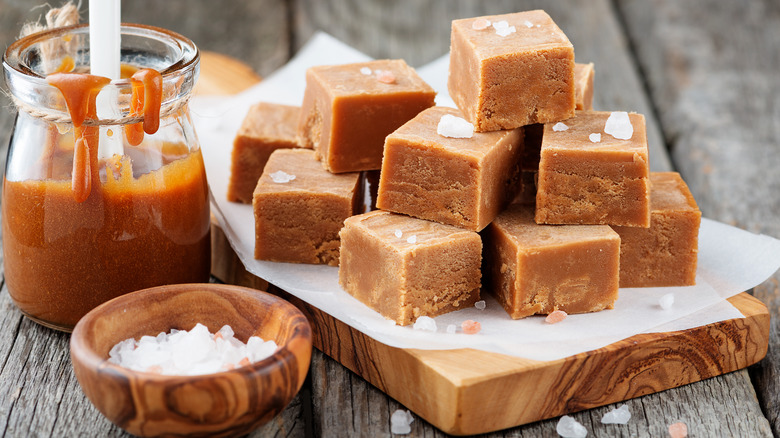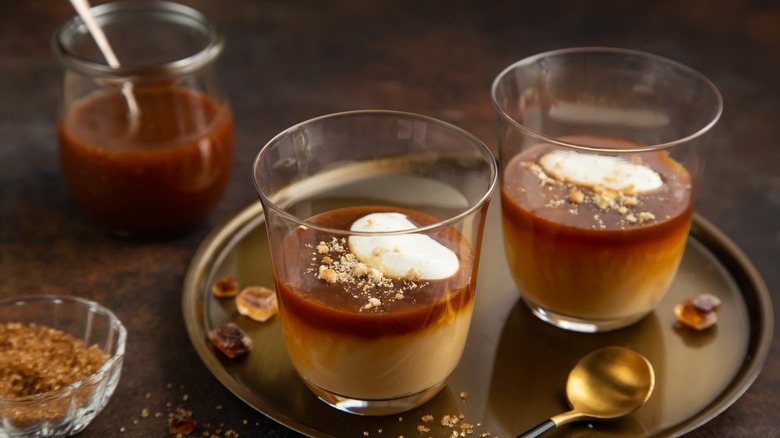The Mysterious Origins Of The Word 'Butterscotch'
There's nothing controversial about what makes butterscotch, unless, as Britannica notes, it's whether or not to add corn syrup to the standard pairing of boiled sugar and butter. Nor does there appear to be anything contentious about its myriad uses. Like caramel and toffee, observes Taste of Home, butterscotch is a frequent flavor added to cakes, candies, cookies, brownies, dessert sauces, pies, puddings, and more.
Despite its many modern uses, however, butterscotch was originally used to flavor hard candies. While there is some contention about the origins (per Britannica), it's typically thought that an English confectioner named Samuel Parkinson created the first butterscotch candies, which were produced in 1817 in the town of Doncaster in Northern England, recalls Spoon University.
The 19th-century candies seem to have found an eager consumer base across the world. The U.K.'s National Archives records that Parkinson's Doncaster Butterscotch was the most popular product in the company's long history.
Although Parkinson is given credit for creating the first butterscotch candies, he didn't invent the name. In fact, he referred to his first candies as "buttery brittle toffee," per Bakerpedia. The origin of the name butterscotch is where controversy and contention abound. No one is quite sure how or when such a delightful word came to be used for such a delicious blending of ingredients. But, of course, many theories have been put forth.
Popular theories for the naming of 'butterscotch'
Given that butter is one of the base ingredients in butterscotch, that portion of the name seems easily explained. It's the scotch part of the equation that has long flummoxed lexicographers and food historians. One theory, according to Spoon University and Britannica, is that the scotch in butterscotch is derived from the word scorch, in reference to the temperatures butterscotch's other key ingredient, sugar, is exposed to during the cooking process.
Another theory, meanwhile, suggests that the final syllable in butterscotch refers to Scotland, alleged by some to be its country of origin (per Britannica).
Bakerpedia, by contrast, believes scotch is simply a suffix meaning "to cut." This theory does have some legitimacy based on another word to use the same suffix: hopscotch. As The Christian Science Monitor points out, the playground game derives its final syllable from the Anglo-Norman verb "escocher," which means to cut or piece (via Merriam-Webster). Scotch thus refers to the lines cut or otherwise marked on the ground to be hopped over. This suffix is likewise apt in the case of butterscotch since giving the candies a smooth, clean shape is nearly impossible if they aren't cut while still warm, observes Bakerpedia.
So who invented the name butterscotch? The truth will probably never be known. But we do know that the three most likely versions all agree that it's a portmanteau, which is to say two words combined to form a new one that carries both their meanings, per Britannica.

